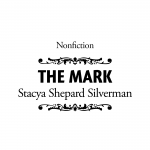María José Giménez is a Venezuelan-Canadian poet and translator working in English, Spanish, and French. She is the recipient of the 2016 Gabo Prize for Translation and fellowships from the National Endowment for the Arts. Foreword Reviews says that her poem, “grammar school (ambiguous loss),” which appears in AFTERMATH: Explorations of Loss & Grief, “…develops a painfully beautiful exploration of the theft of culture and language.” We are happy to present to you this contributor profile of María José.
Can you introduce yourself as well as your contribution to AFTERMATH?
I’m a poet and professional literary translator from Venezuela transplanted to North America in the early 90s, new Canadian living in the US, rock climber, connector. Currently I live in Western Massachusetts, with parts of me catching up at various speeds after having lived in many places.
Writing makes me feel rooted and connected, so I spend as much time as I can writing and translating. After the Pulse shooting, I was overcome by feelings of loss and fragility for many months. This poem is part of a series that began to take shape that year, using word histories to explore the body as home and the intersections between my languages and place, memory, and identity.
What attracted you to the theme of the book?
Grief is an inevitable part of being human, and a topic we tend to avoid. People often withdraw when they’re grieving. We often ignore others’ sorrow—perhaps we don’t want to feel our own or be reminded that we, too, are going to die. And no one teaches us how to grieve.
Certain kinds of physical and psychological trauma can make it difficult to relate to people who don’t share your view or background. The migrant experience leads to complex or “ambiguous” types of loss—grieving at a distance, in isolation, sometimes in anticipation, or as an incomplete process in the absence of collective ritual.
Contributing to AFTERMATH was a way to share a sliver of my own experience and be part of a visible, collective container around this theme.
What are you hoping to convey to readers with your poem?
This poem is rooted in categories of loss that don’t fit the realm of more so-called normal loss. Ambiguous loss can be especially alienating and confusing, hard to name and heal: losing a loved one to something other than death, the death of a relative you haven’t had a relationship with in years, or someone back home who’s completely unknown to everyone in your life “here.” There are invisible health conditions, having an organ or body part removed, a rupture with someone you can’t call a breakup, being a victim of sexual abuse that can’t be called rape or that’s so far in the past you can’t ever bring it to justice. There’s also the daily grinding loss of being othered, collective grief passed down from our ancestors and that associated with mass shootings, wars, or genocide in remote parts of the world.
All loss takes something away and leaves something behind—language, memories, people, objects. This piece attempts to give voice to the embodiment of complex loss, the tender creative approach it requires, and the small things we hold onto and that hold us through our sorrow.
Talk about some of your favorite projects you’ve been involved with.
My most recent publications: a translated novel by Alejandro Saravia (Biblioasis) and a translated chapbook of poems by Mara Pastor (Cardboard House Press). These two projects were as challenging as they were rewarding, so it’s great to finally see them in print.
An exhibit of collaborative mixed media works, RECTO/VERSO, with Henry Amistadi, a photographer and poet friend who inspired me to return to photography, my main medium in my 20s before I turned to writing and translation. It just opened in early April in Easthampton, MA, and results from a two-year exploration of where our practices overlap.
What’s next on the horizon?
I just came back from a four-week artist residency at MASS MoCA, and I’ll be delving deeper into my studio explorations of ways to make translation visible off the page. I spend a lot of time rewriting other authors’ work into another language, so it’s a gift to have dedicated creative time and space for my own work. I’m also working on a collection of poems.
I’m translating two collection of poems by Mara Pastor (Puerto Rico), whose work I adore and can’t stop translating. Also on my desk are a couple of co-translation projects with my closest collaborator and dear friend Anna Rosenwong. Translating and seeking publication for translated books is always exciting, and at times disheartening, so it’s great to be working as a team. I can’t wait to see where that takes us.
You can catch María José reading her piece at Greenlight Bookstore on April 26th for the book’s launch. RSVP on Facebook here: https://bit.ly/2G2rRJU





